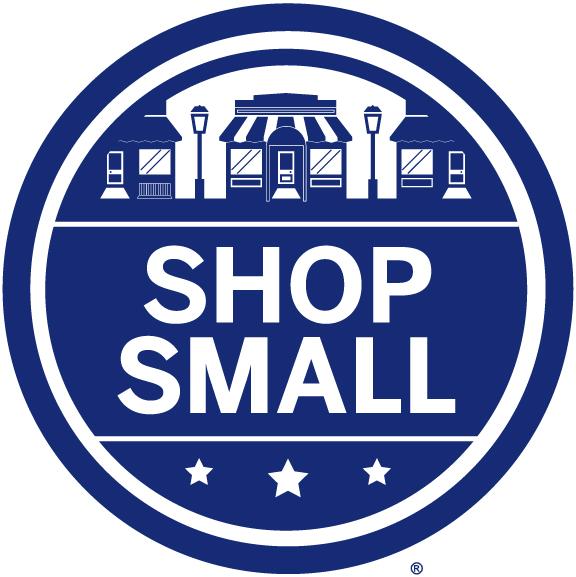Small Business Advocacy – and Why It’s Important Right Now
Let’s face it – the last few years small business has kinda been a punching bag when it comes to policy.
If you’re a small business owner, you felt it.
Regardless of how you feel about decision-making throughout the pandemic, I think we can all agree that small business took it on the chin.
Lockdowns, delayed openings, rules that limited interaction, being asked to become the health police, the work-from-home push…
All of which was replaced with workforce shortages, supply chain holes and brand new consumer behaviors.
It’s been a tough few years.
There were rays of hope like the forgivable PPP loans.
And covid taught all of us that if we’re to survive, there must be a virtual component to our work, whether that be Zoom meetings, online ordering and curbside pickup, or digital payment options.
But small businesses nationwide are still finding their way after all of that.
Momentum Joins the National Small Business Association
This past week, I was humbled to be invited to serve on the Leadership Council for the National Small Business Association (NSBA), an organization that has served as the federal advocacy arm of small business across the country since the 1930s.
One of our clients came across an e-mail from the NSBA looking for advocates of small businesses to help them engage in regions across the country, and forwarded it to me – “This sounds like you,” he said.
I agreed, and reached out.
Given some of the small business advocacy I’ve worked on the past several years, I not surprisingly hit it off with the team from NSBA immediately, and I agreed to join the Leadership Council – I’m already thrilled to be a part.
The NSBA and the Leadership Council develop and advocate a national small business agenda in Washington, and have a record of being a resource for the federal government for decision-making on small business initiatives, but also the voice of small business in that conversation.
Most recently, the NSBA was integral in helping the federal government create the Paycheck Protection Program (PPP), which, while, yes, there have been some challenges with fraud, if you’re a small business you know that it was a pretty well thought out program, especially given the timeframe and urgency with which it had to happen.
Why is Small Business Advocacy so Important?
While working with the NSBA definitely has some cache to it, this wasn’t a “leap at it” decision for me.
 Why? Like most small businesses, I’m super busy running the shop.
Why? Like most small businesses, I’m super busy running the shop.
There’s not a lot of time in the day for things that aren’t necessarily client service or don’t lead to new business.
And I’ve been doing this stuff for a long time.
Like back in 2017, when a group of colleagues and I created the Small Enterprise Alliance of Western New York (SEAWNY), an association of small businesses designed to serve as the voice of small business in the region…
This job needs to be done.
It’s why I chair the advocacy committee for the Niagara USA Chamber of Commerce.
It’s why I joined small business recovery task forces during the pandemic (sometimes as the only small business represented on the committee!).
These things need to be done, because small businesses are easy to ignore.
Yes, every elected official will claim that small business is “the backbone of our economy,” but when it comes to policymaking, it often doesn’t feel like they believe it.
That’s not saying they don’t, but let me give you some political campaigning inside baseball…
Realities of Small Business Politics
As a local political consultant for 20+ years, I’ve been deep in the trenches of local politics for quite some time.
Here’s a reality: when a politician goes door-to-door in a small business district, there is no guarantee that the people they are shaking hands with are voters in their jurisdiction.
In fact, it’s probably a hit-or-miss.
Which, unfortunately, isn’t a strategy that adheres to political science, where a canvassing candidate needs to optimize their time in order get the most bang for the buck.
It’s much more efficient and effective to spend your door-to-door time going to residences, where you know that the person answering the door is actually able to vote for you on Election Day.
That’s not to say that doing a small business day on a candidate’s route is a bad idea, because you will meet great people who have challenges day-to-day, a strong small business tax base helps to allay homeowners’ property taxes (and increases), and, oh yeah, it makes for great PR!
But that doesn’t mean that those politicians are going back to City Hall/the state capitol/Washington with small business at the top of their minds.
And many don’t think that way anyway – when we ran our SEAWNY Small Business Festival in 2017, we invited every elected official from our region, county level and above, to join us for our kick-off breakfast.
You know: Easy photo opp – “I’m having breakfast this morning with 150 small businesses…”
Outside of the lieutenant governor, who we’d invited to speak, guess how many showed up? Yep. Zero.
(Now, as a political consultant, MY clients would have been there, snapped pics, posted to social media, done a press release, delivered a proclamation and sent a newsletter about it – but that’s me… I mean – who doesn’t want to associate themselves with small business?!)
That’s why the work needs to be done.
But, none of us have time to do it.
So, we have to make the time.
Whose Job is This?
There are many agencies that exist that touch on small business advocacy.
Obviously, the NSBA caters specifically to small businesses on federal policy, but other organizations, such as chambers of commerce, generally have some part of their agenda dedicated to the growth of small business.
As do manufacturing alliances, building trades organizations, restaurant associations, even incubators.
It’s in all of their best interests to support the needs of their smallest businesses.
But, as we like to say, most don’t have someone on staff waking up every morning saying, “How am I going to help grow the small business community today?”
Because they have other fish to fry.
Sure, what they do also helps small businesses, in most regards (most, I say – I got caught in a pickle years ago while I was with the chamber where we were being asked to support either the big business stance or the small business stance on an issue, and there was no middle ground).
But is their first foot forward the one representing small business, as a rule? No.
That’s not to say it’s wrong – it’s a simple 80/20 rule… Organizations have to take care of the funders keeping them in business first.
There are excellent small business associations around – one of the best is one I’ve gotten to know well is in Cleveland, the Council of Smaller Enterprises (COSE).
In what’s a really great model, COSE is aligned with the regional chamber in Cleveland, the Greater Cleveland Partnership, and they do what they do – services, networking and advocacy for small business.
If you’ve followed the economic revitalization of Cleveland over the past decade-plus, it might lead you to believe that they’re onto something by having a specific focus on small business.
Whether it’s a region, a state or the nation, that focus on small business is absolutely critical, and it takes both leadership and the commitment of already-too-busy small business people to make it happen.
What Happens Without a Small Business Focus?
Any small business owner being asked this question, I’m certain, could probably give you a few hours’ diatribe on our plight.
But, at the risk of going into a rant, some timely examples:
It was well-documented across the country at points during the pandemic when big box stores were given the OK to re-open after lockdowns, but small retailers had to remain closed for some time.
What’s your biggest small business issue right now? Workforce, yes? How many small businesses have trained then lost employees in the past year to bigger companies who can afford to pay a couple more bucks an hour?
When’s the last time government passed an employee leave or scheduling bill that made it easier for small businesses to staff their operations?
Interestingly enough, back in 1937 when DeWitt McKinley Emery, owner of the Monroe Letterhead Corporation in Akron, Ohio, first organized the association that would become the NSBA, it was because he thought that small businesses were being unfairly targeted by the government, as the country was coming out of the Great Depression. (https://www.nsba.biz/_files/ugd/601769_c5f9ae74e2114bbaadaa45b14ca74723.pdf)
Small business advocacy is not a new need.
Definition of Small Business
Part of the challenge is that “small business” encapsulates a wide range – and that’s an important piece of the puzzle.
In fact, the definition of small business according to the Small Business Administration is a maximum of 250 up to 1,500 employees, based on industry (https://www.sba.gov/sites/default/files/files/Size_Standards_Table.pdf).
Covers a lot of ground.
And makes it pretty easy to leave “Main Street” – which I’d define as logically small businesses – out of the conversation while still fighting for small business.
Here’s why I’m thrilled to have been asked to join the NSBA – I’m (right now) a one-person shop.

Yes, I work as an extension of our clients who are also small businesses that put the number of employees in the hundreds, and I work with many, many small businesses both directly and through the chambers of commerce we work with, but I’m as grassroots as it gets.
In the trenches, sleeves rolled up, doing the dirty work.
Many organizations that deal in small business are not looking for input from folks like me, despite the fact that every one of us knows plenty of small entrepreneurs who deal daily with unique challenges created by public decision-making.
Whether they be taxes or workforce or zoning or regulation or labor law or succession rules… While trying to put out a good product, provide great customer service, deal with supply chain issues, hire people and plan for the future.
Get Involved – Because You Need To
I presented my background in government affairs, where I’ve worked on policy from federal down to school district, and my viewpoint as a “Main Street” business (as well as my willingness to hurl myself at this cause) to the NSBA as a different perspective, likely, than many of their members.
I’ve appreciated the interactions I’ve had with the NSBA team so far and, as I told them, am looking forward to aggressively digging in.
Notwithstanding, though I just got involved in the NSBA, and am still learning the ropes, I’d encourage other small businesses to, as well.
Take that time.
Federal policy isn’t close enough to home for you? Then look state or local.
If there’s a “voice of small business” in your local area, get involved.
If it’s your chamber of commerce filling that role, join them – and sign up for their small business committee if they have one.
Or join their advocacy committee and BE the voice of small business on it.
In the meantime, I’ll use my newsletter and LinkedIn to help bring news and updates on federal small business advocacy to the chambers of commerce that I work with – part of the role of NSBA Leadership Council members.
Please stay in touch with me on ways to get involved, and with feedback that I can bring to the national small business conversation!
***
Related Blog: Chamber of Commerce Committees – Why You Should Be On One (Or More)